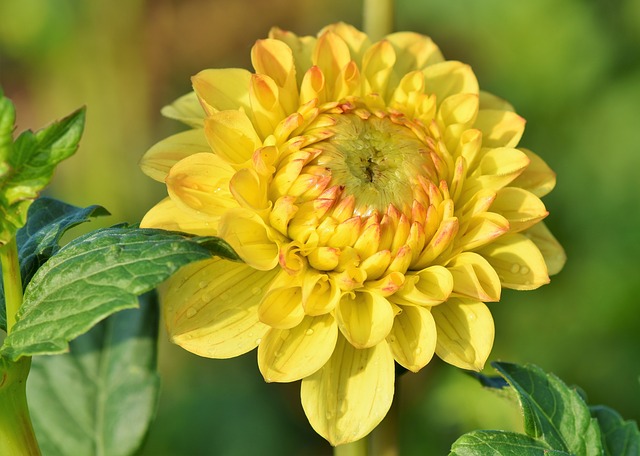
It can sometimes seem overwhelming to think about how to learn to garden, but with proper knowledge, anyone can be taught how to grow a successful garden. Hopefully, these tips will help you to improve your horticulture skills and become an expert gardener.
Brighten up your flower beds with annuals and biennials. These usually grow quickly, and provide an easy-to-change solution to making your flower beds bright and beautiful. They allow you to select different flowers from one year or season to the next. In addition, you might need something to fill empty spaces in your flower garden. Fill gaps with annuals or biennials. Just make sure the flowers will get enough sun to thrive. There are plenty of varieties including petunia, marigold, cosmos, sunflower, hollyhock, and rudbeckia.
If powdery mildew appears on your plants, don’t purchase expensive chemical solutions. Mix some baking soda and a very small amount of liquid soap into water. Once a week, spray this on plants to eliminate the mildew. Baking soda is not harmful to your plants and will take care of the issue as well as any other treatment.
Pre-soak your seeds through the night in a dark area. Use a small container filled with water to nearly the top and place several seeds in it. This hydrates your seeds and jump-starts their growth. Seeds that are cultivated this way are more likely to survive and mature properly.
Make a plan for your garden. Use this to remind you where certain things were planted, later when they start sprouting. You are also less likely to lose smaller members of the larger garden in the overall mix.
Make sure that you divide your irises! To increase the number that you have, you need to take all your overgrown clumps and split them up. If you notice a dead foliage, lift the bulb. The bulbs often divide in your hand with no intervention on your part, and when you replant them, they will usually flower the following year. Utilize a knife if you are trying to divide rhizomes. You can split the Rhizomes production by cutting off thin portions from the exterior and discarding the remaining insides. Each piece should have at least one strong offshoot. Replant the new shoots right away.
Broad-spectrum pesticides are really not the optimal choice for pest control in your garden. These strong pesticides are non-selective, killing beneficial insects as well as pests. Beneficial insects are more susceptible to strong pesticides than the insects you are actually trying to get rid of. This will lead you to end up killing off the good bugs in your garden, leaving the field wide open for the harmful ones. This will cause a cycle to start where you will need to keep increasing the amount of pesticide you are using.
Try to relax with gardening. There are numerous avenues to pursue when attempting to find your personal peace and relaxation. Horticulture is at the top of the list of ways to relax for many people. The generous return of a garden far outweighs the minimal investment of money required. The best return on your investment is the feeling of happiness and tranquility from growing your own greenery.
Now, admit it, gardening isn’t as complicated as you thought! There is, of course, a vast amount of information out there on horticulture. Sometimes, all it takes is one little tip that can help guide you along your way to help you get started. Hopefully, this article has provided you with just that.